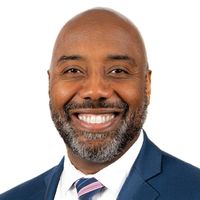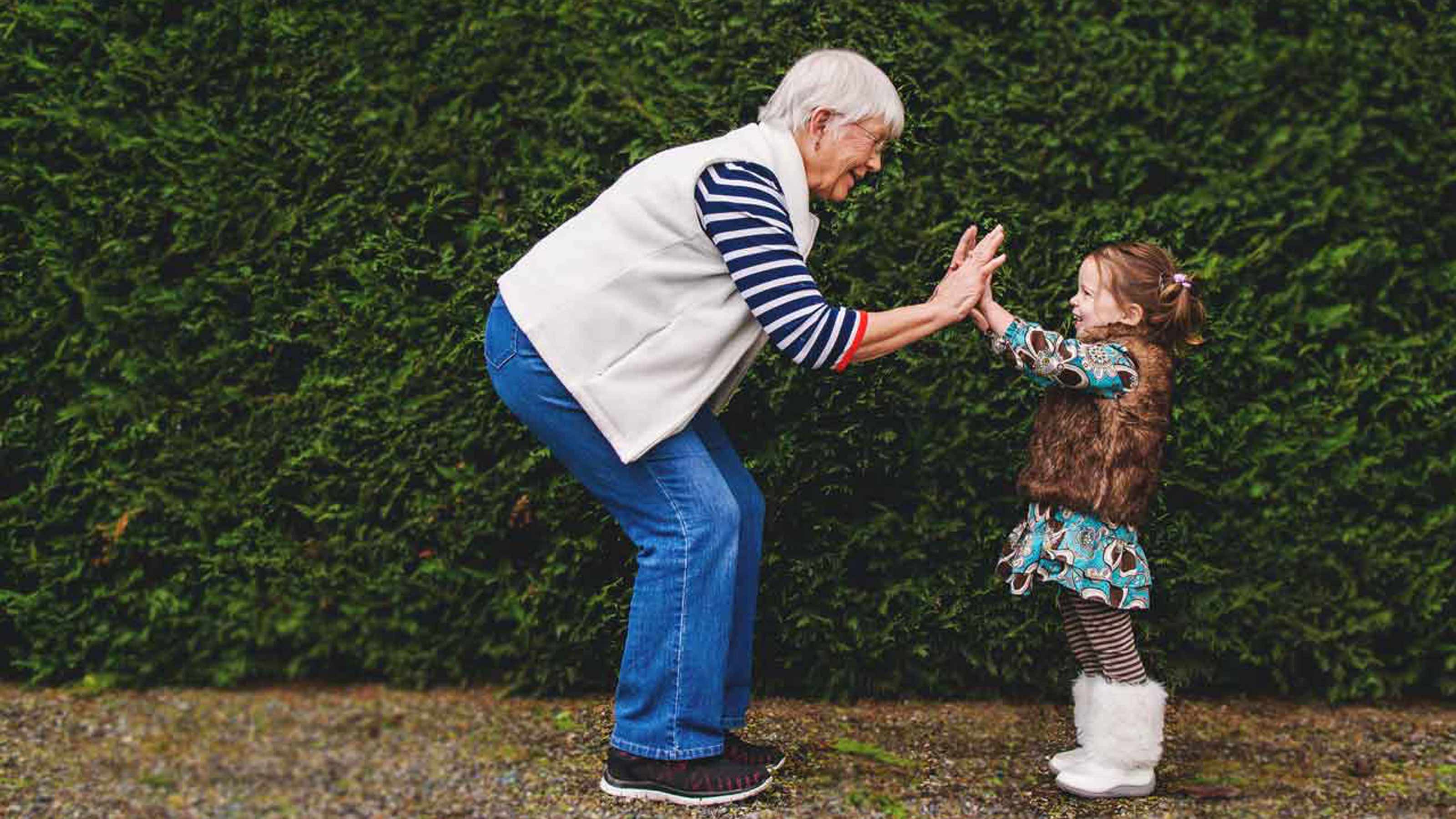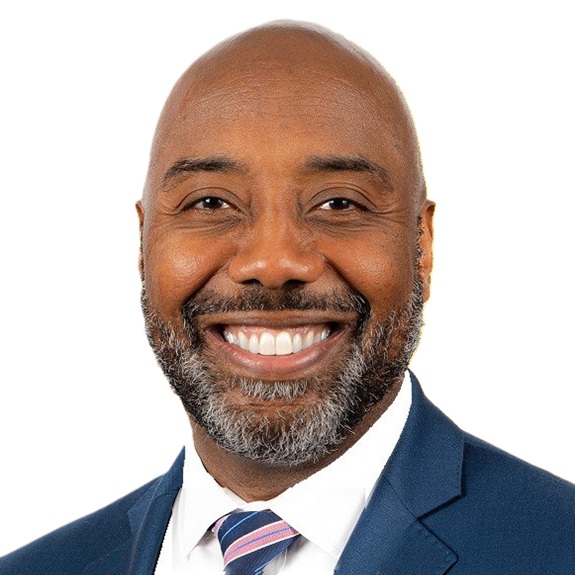How to Inspire Your Grandkids to Invest in Charitable Giving
When trying to motivate future generations to invest in good causes, it’s easy to get caught up in the "what." Yet it’s the "why" that really makes the difference. For me, it was escaping a coup in Liberia as a child.


Profit and prosper with the best of Kiplinger's advice on investing, taxes, retirement, personal finance and much more. Delivered daily. Enter your email in the box and click Sign Me Up.
You are now subscribed
Your newsletter sign-up was successful
Want to add more newsletters?

Delivered daily
Kiplinger Today
Profit and prosper with the best of Kiplinger's advice on investing, taxes, retirement, personal finance and much more delivered daily. Smart money moves start here.

Sent five days a week
Kiplinger A Step Ahead
Get practical help to make better financial decisions in your everyday life, from spending to savings on top deals.

Delivered daily
Kiplinger Closing Bell
Get today's biggest financial and investing headlines delivered to your inbox every day the U.S. stock market is open.

Sent twice a week
Kiplinger Adviser Intel
Financial pros across the country share best practices and fresh tactics to preserve and grow your wealth.

Delivered weekly
Kiplinger Tax Tips
Trim your federal and state tax bills with practical tax-planning and tax-cutting strategies.

Sent twice a week
Kiplinger Retirement Tips
Your twice-a-week guide to planning and enjoying a financially secure and richly rewarding retirement

Sent bimonthly.
Kiplinger Adviser Angle
Insights for advisers, wealth managers and other financial professionals.

Sent twice a week
Kiplinger Investing Weekly
Your twice-a-week roundup of promising stocks, funds, companies and industries you should consider, ones you should avoid, and why.

Sent weekly for six weeks
Kiplinger Invest for Retirement
Your step-by-step six-part series on how to invest for retirement, from devising a successful strategy to exactly which investments to choose.
When it comes to charitable giving, we all have our passions. These are the issues and causes that are close to our hearts and that tend to receive the majority of whatever money we can afford to give.
Personally speaking, it’s human trafficking. When I was 10, my family and I narrowly escaped a military coup in Liberia. We were fortunate to be given the opportunity to come to the U.S. and were made extremely welcome by the community we moved into. I’ve been able to go on to lead a happy and enjoyable life as a result.
But lots of boys and girls, including many of those in Liberia at that time, aren’t so lucky. Many are moved around the world illegally, never having the chance to call anywhere home, let alone fulfill their potential. Because of my own experiences, I want to be part of tackling that issue – and I’d dearly love for my grandchildren to continue that work after I’m gone.
From just $107.88 $24.99 for Kiplinger Personal Finance
Become a smarter, better informed investor. Subscribe from just $107.88 $24.99, plus get up to 4 Special Issues

Sign up for Kiplinger’s Free Newsletters
Profit and prosper with the best of expert advice on investing, taxes, retirement, personal finance and more - straight to your e-mail.
Profit and prosper with the best of expert advice - straight to your e-mail.
The Power of Why
But here’s the thing: I won’t be insisting they do. That’s because I strongly believe the way to inspire future generations into charitable giving isn’t by informing them what causes you support or even explaining how you go about doing so. It’s by helping them truly understand why.
Put another way, I want the next generations of my family to feel connected to the reasons I invest my money to combat human trafficking. To give them a window into my soul, including telling them a more detailed version of the story I mentioned earlier regarding my experiences in Liberia.
They might then say, “Granddad, that's amazing. I want to be a part of that,” which is great. But they might also say, “Granddad, I totally get your motivation, but what I feel passionate about is actually X or Y.”
Either way, the result is a good one because they’re now engaged in the concept of charitable giving. So even if they opt not to follow my exact path on the “what,” they appreciate the “why” and are more likely to make philanthropy a part of their life going forward.
A Virtuous Circle
As for how to achieve that, as I said, part of it comes down to be willing to reveal your soul on why you invest in the charities you do. But you should also try to get those future generations involved in your giving as early as you feel comfortable doing so.
So, when you go to the annual fundraiser, take them along. When you’re reviewing your annual contribution, talk them through it. And use real-life examples to show them the difference your donations are making.
Once they’re old enough, you can also go a step further and set up a matching scheme to help inspire them to support a charity of their choosing. So if, for example, you give $30,000 a year to charity, you could say to your grandson or granddaughter, “Hey, I’ll give you $5,000 of that to invest in a cause you feel strongly about.” All they have to do is match it, either with actual dollars or through effort, like helping with fundraising or volunteering at events and projects.
This works especially well because you then find yourselves having an annual meeting about the contribution you made together, how it was invested and possible plans or ideas for the following year. You’ve created a kind of virtuous circle in which they have a voice and that continually deepens their engagement with charitable giving as they grow older.
A Lasting Legacy
Of course, the issues and causes your grandkids decide to support will almost certainly change according to their own experiences and motivations as well as the evolving nature of the world around them. (It’s unlikely, after all, that many of our great-grandparents invested in the kind of climate change projects that many of us feel strongly about now.)
But what matters is that you’ve sown the seed. You’ve inspired future generations to make charitable giving as much a part of their financial planning as streamlining their tax affairs or building a retirement fund.
Just like our personal passions for philanthropy, we all have our own unique ideas about the type of legacy we want to leave for our loved ones after we’re gone. But inspiring a new generation of charitable givers seems to me like a very good place to start!
Profit and prosper with the best of Kiplinger's advice on investing, taxes, retirement, personal finance and much more. Delivered daily. Enter your email in the box and click Sign Me Up.

Stephen Dunbar, Executive Vice President of Equitable Advisors’ Georgia, Alabama, Gulf Coast Branch, has built a thriving financial services practice where he empowers others to make informed financial decisions and take charge of their future. Dunbar oversees a territory that includes Georgia, Alabama and Florida. He is also committed to the growth and success of more than 70 financial advisers. He is passionate about helping people align their finances with their values, improve financial decision-making and decrease financial stress to build the legacy they want for future generations.